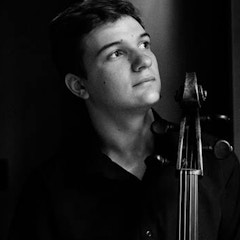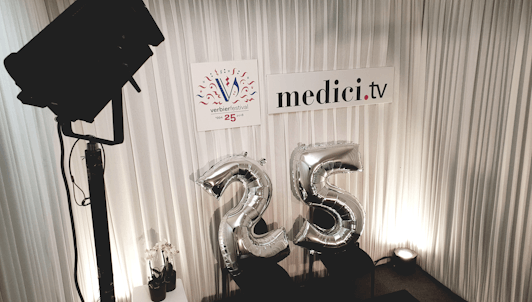Cellist Andrei Ioniţă, born in 1994 in Bucharest, began taking piano lessons at the age of five and received his first cello lesson three years later. He studied under Ani-Marie Paladi at the Music School "Iosif Sava" in Bucharest and is currently studying under Professor Jens Peter Maintz at the Universität der Künste Berlin.
Andrei Ioniţă draws his musical inspiration from the greatest cellists of our time, among them David Geringas, Steven Isserlis, Heinrich Schiff, Wolfgang Boettcher, Gary Hoffman and Wolfgang Emanuel Schmidt. In June 2014, he collaborated with Gidon Kremer and Christian Tetzlaff at the Kronberg Academy’s Festival, Chamber Music Connects the World.
In the past few years, Andrei Ioniţă has been heard in such venues as the Carnegie Hall, the Cadogan Hall in London, the Chamber Music Hall of the Berliner Philharmonie, or the Gasteig and Herkulesaal in Munich. In 2015, he gave his debut in the Berlin Philharmonic as soloist with the Deutschen Symphonieorchester.
Ioniţă is prizewinner of many international competitions. In June 2013, he was awarded First Prize at the Aram Khachaturian International Competition; in September 2014, he won Second Prize and the Special Prize for the interpretation of a commissioned composition at the International ARD Music Competition in Munich. He received the Second Prize at the Grand Prix Emanuel Feuermann 2014 in Berlin two months later. Ioniţă won international recognition in June 2015 as the winner of the First Prize at the International Tchaikovsky Competition in Moscow.
Andrei Ioniţă’s 2016/17 season will feature further major debuts with the Tokyo Philharmonic Orchestra, the Czech Philharmonic Orchestra, the MDR Orchester and the Munich Philharmonic. He will also will appear in Helsinki, Japan, the Laeiszhalle Hamburg and in Lucerne with a duo program for cello and piano. In addition, he is regularly by Maestro Valery Gergiev and will take part in the Marlboro Music Festival in July 2017.
Andrei Ioniţă is a scholarship recipient of the Deutsche Stiftung Musikleben and performs on a violoncello made by Giovanni Battista Rogeri from Brescia in 1671, generously on loan from the foundation.


